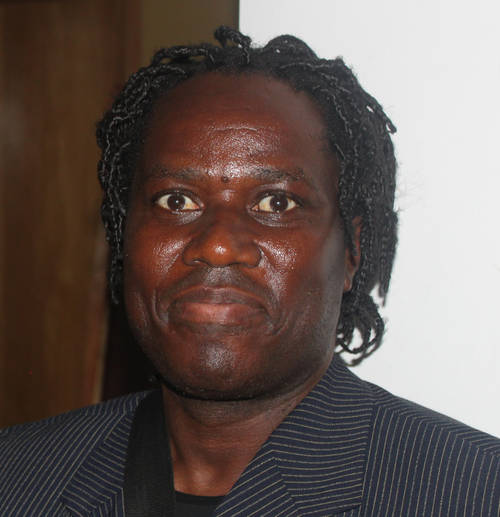
My latest book “Lost in Democracy” illustrates in detail, historical facts and political events to support the notion that Black Africa is consumed in the western trap called “Democracy”. It paints a picture of a continent that is denied the opportunity to decide for itself, what system of government would best suit its needs.
Paradoxically, the societies at the center of such denial are those that evolved through political stages to develop a system that outwardly, seems to work seamlessly for them as a constant in their political equation. They are societies, which in spite of all smoothness of process, still float far below the threshold of perfection in this system of choice.
“Lost in Democracy” describes the role of the political establishment in every democracy and how they work to truncate the rules that the ordinary man hardly notices on the street. Indeed, it highlights the power of the invisible forces of the establishment that pulls the strings unseen by any estate of the system. Only in Africa is the political establishment not a clandestine affair. With Nigeria as a case study, the establishment is an open affair. It is known to everyone, who has the brain to observe.
“Lost in Democracy” reflects the influence of the international establishment on the politics of Africa and clearly illustrates the limits of the space that they allow African leaders to run the show on their own terms and how far the international political establishment goes to protect its own strategic interests at the expense of African unity and general welfare. While African leaders pretend to rule their lands within a limited scope and external forces dictate the crucial terms and boundaries, within which they operate, the continent lacks an intellectual movement in the form of a think-tank to spearhead the battle for an indigenous system to place the interest of the continent on the forefront.
“Lost in Democracy” therefore, advances the urgent need to device an indigenous system of government that will be a medley of the colonial element of constitutionality and various models and variation of systemic practices.
Of course, there will always be sufficient poorly-informed pseudo-intellectuals, who will throw stones before taking a look at the content of “Lost in Democracy” in the need to hastily advance what they falsely assume to be a scientific and very intelligent point of correction.
One such opinion is one that says democracy is the perfect recipe for Africa. It should not be dumped because it has never been properly practiced in the very first place.
Such half-baked opinions would have been generally, better off, left on their own were it not for the fact of the misleading sense of righteousness that the authors of such catastrophic perceptions ignorantly attribute to themselves to the point of writing rejoinders to elaborate reviews. Funnily, they advance reasons, which unknown to them, have been thoroughly dissected in the work itself to leave the inevitable conclusion of the sacrosanct need for an indigenous political system in the continent to solve several problems including secession and the so-called marginalization.
While opposing the suggestions advanced by “Lost in Democracy”, proponents of this substandard approach seem to have no clue whatsoever, that most advanced democracies in the world today, can yet not boast of having the system properly practiced even in their own climes. The United States of America has faced accusations of election rigging in its recent history that were hastily contrived and resolved in a face-saving maneuver. Al-Gore may tell the story better. It has been called out for several systemic defects that obviously compromise the desired perfection of the democratic practices that the west consistently tries to push down and has obviously, successfully pushed down the throat of Black Africa.
As “Lost in Democracy” illustrates, the non-compromising entrapment of Black Africa in the capricious cages of the international political establishment marks the limits of the practice of democracy in the continent. The book offers proofs and examples of international interventions in weak societies to protect imperfect systems in the strategic interests of the western countries thus underscoring the reality that democracy is never designed to succeed anywhere in Black Africa unknown to our pseudo-intellectuals.
“Lost in Democracy” is a must-read for those, who seek to have or express an opinion on the issue as every opinion expressed on the basis of assumptions and without a clear idea of where the book is coming from or what it basically talks about, will amount to a ridiculous show of presumptuous self-aggrandizement and mental emptiness.
Grab you copy now and let us engage in a constructive debate no matter how big or small we may all be. Let us sow the seed today, for future generations to fall upon in the quest to move the continent forward.
Amazon, online bookstores, the publisher “authorhouse” are all purchase outlets for “Lost in Democracy”. Readers in Europe, please contact Frisky Larr at FriskyLarr@aol.com (+49 172 2801173 in Germany). Readers in Nigeria, call +2348077412750 in Benin City, the landline +23414548922 in Lagos (during office hours) or +2348185594203 in Abuja or visit the bookstore in Olusegun Obasanjo Presidential Library in Abeokuta to grab your copy now.
END

Be the first to comment